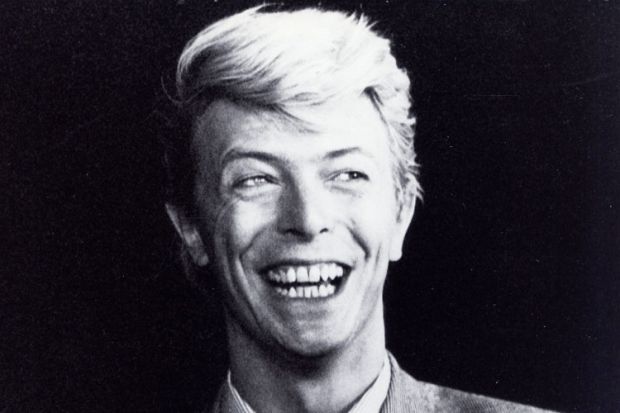This morning at about 6.30am I awoke to breaking news about David Bowie. Like so many others sharing their experiences on social media, I found myself not only dealing with the loss of a hero, but also my own relationship with him. I never met him face to face, he was never an acquaintance, but I felt devastated all the same.
Like many Bowie fans, I had been discussing his latest album, Blackstar, in his Facebook fangroup. Like many I was critical, but hopeful that the album was the start of a new vein of creativity in his musical output. Today the album feels like that moment when you’re told that someone has died and you reply, “I was just talking to him the other day.”
We were all “just talking” to Bowie on Friday when Blackstar emerged. This morning, listening to those sentimental songs, I sobbed. A 53-year-old man, weeping for this man I never met.
On the school run, my 15-year-old son asked my why I cared so much about “a celebrity”. I tried to explain.
As a football-obsessed boy, music wasn’t that important to me. Sure it was ever-present thanks to my older brother, who played me Ziggy Stardust when it came out. I liked it enough to take notice of Bowie when he was on Top of the Pops. But it was when I saw him performing Drive in Saturday on The Russell Harty Show that I was stopped dead in my tracks. In those few minutes I became a victim of the transformative power of rock music.
I became a fan. I still played football, but my interests lay elsewhere.
The following year at secondary school I joined my first band and within 12 months my football career was over. Instead I became a music obsessive, scouring record shops for artists old and new – especially those whom Bowie talked about. But he did so much more for me than just give me music. He opened my eyes to possibilities.
Little surprise, then, that as 1976 reared its head I fully embraced punk and then, a few years later, I did the same with Futurists (or New Romantics as the press preferred). These scenes weren’t just about music, they were lifestyle choices that demanded we be open to ideas and questions about music, art, literature, identity, sexuality, gender – and at the centre of it all was Bowie.
Read more: The scholar spending a year as ‘David Bowie’
I didn’t get on with school. I was the kind of pupil whom teachers dread – clever but too stupid to use it. But I was using it. I ran my own fanzine, I was writing never-to-be-published novels, I was painting and I was performing music. My relationship with David Bowie placed him as the educator and me as his student and I was busy emulating his oft-claimed “Renaissance Man” approach to creativity.
Where school failed, Bowie succeeded. I discovered a love of art, literature, poetry and performance as much as music. I also started to read many of the philosophers whom he mentioned in interviews, and eventually, at the age of 27, I enrolled on a communication studies degree.
I read books with a voracious appetite and consumed ideas in a way that mimicked my idea of my hero. This led me to a career as a music journalist and author. I truly believe that I became a writer because of the fires he lit in me. This inspiration to always seek challenge led me into a career in lecturing and the associated MA and PhD studies. Years later I gave my first professorial lecture about him.
In 2013, I published a short paper in Celebrity Studies Journal, “A silent voice across the MEdiaverse: The Next Day as identities prosumed”. In it, I proposed the idea that The Next Day, his comeback album of that year, was a representation of social media’s push towards placing the individual experience at the centre of the media experience.
From album artwork to that year’s David Bowie Is… exhibition at the Victoria and Albert Museum, it became ever more clear that the only voice not being heard was his. Instead we had representation of his past. Bowie hadn’t come back with a big statement about his own identity, instead he was then whoever we wanted him to be.
Fitting then that today’s most poignant Bowie epitaphs have come from fans on social media, each expressing their own feelings about who he was. For me it’s simple – in so many ways, David Bowie was my teacher. My love of his music and what he represented encouraged me to continually reach, reinvent and discover – without cynicism. He was an inspiration.
Martin James is professor of music industries at Southampton Solent University.
Register to continue
Why register?
- Registration is free and only takes a moment
- Once registered, you can read 3 articles a month
- Sign up for our newsletter
Subscribe
Or subscribe for unlimited access to:
- Unlimited access to news, views, insights & reviews
- Digital editions
- Digital access to THE’s university and college rankings analysis
Already registered or a current subscriber? Login




